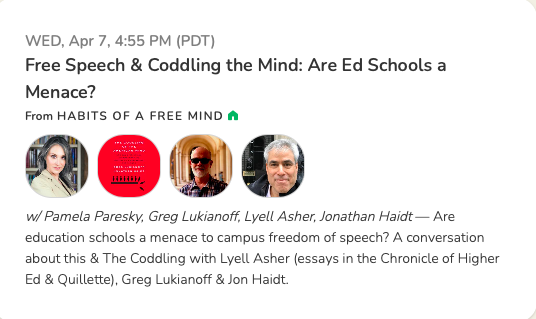
The authors of The Coddling of the American Mind would beg to differ. They explicitly argue it is new to the point of new psychological pathology. I think they’re wrong, but this is the claim.
https://twitter.com/mattyglesias/status/1387815463149780996
Haidt in particular argues that we have seen the "sudden emergence of a new moral culture" and even pinpoints the year he believes it's detectable.
The theory of a new moral culture that is at odds with a truth-seeking telos is at the heart of what has become anti-cancel culture rhetoric, that those calling for change are some combination of morally and psychologically defective.
I think the theories of Coddling are horsepucky and a responsible academic like Haidt should be embarrassed by them, but there was enough of an audience primed for the message for it to take hold and well...here we are. insidehighered.com/blogs/just-vis…
• • •
Missing some Tweet in this thread? You can try to
force a refresh







